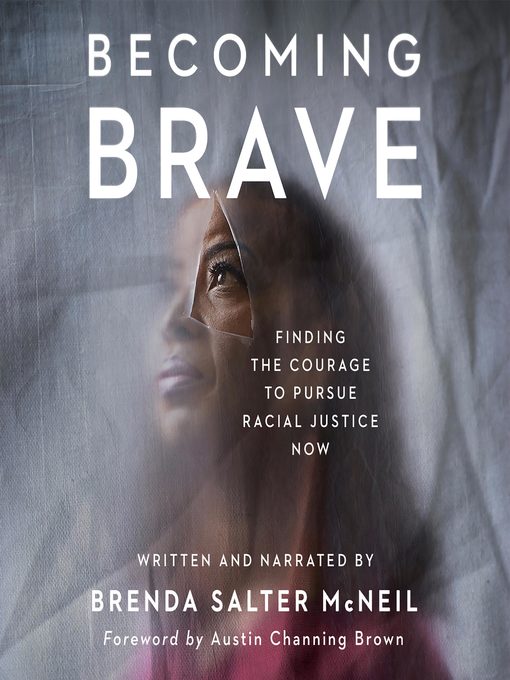- Popular Magazines
- Just Added
- Cooking & Food
- Fashion
- Health & Fitness
- Home & Garden
- News & Politics
- See all magazines collections
Becoming Brave
Finding the Courage to Pursue Racial Justice Now
Looking through the lens of the biblical narrative of Esther, McNeil challenges Christian reconcilers to recognize the particular pain in our world so they can work together to repair what is broken while maintaining a deep hope in God's ongoing work for justice. This book provides education and prophetic inspiration for every person who wants to take reconciliation seriously.
Becoming Brave offers a distinctly Christian framework for addressing systemic injustice. It challenges Christians to be everyday activists who become brave enough to break the silence and work with others to dismantle systems of injustice and inequality.
-
Creators
-
Publisher
-
Awards
-
Release date
September 1, 2020 -
Formats
-
OverDrive Listen audiobook
- ISBN: 9781705013366
- File size: 178832 KB
- Duration: 06:12:33
-
-
Languages
- English
-
Reviews
-
Publisher's Weekly
May 18, 2020
In this powerful work, pastor McNeil (Roadmap to Reconciliation) uses the story of Esther to guide readers through the process of developing greater courage as part of an effort to realize racial justice. The bravery McNeil focuses on is a willingness to lead the pursuit for justice through action, asking it of individuals, as well as Christian churches and communities. McNeil contends that good leaders are not born but shaped by circumstance, and must choose to take steps that may be challenging. McNeil sees all of those steps in the lives of Esther, Vashti, and Mordecai: imagining oneself as an activist, however unlikely; reclaiming one’s identity as a source of strength; preparing for work and allyship through dialogue, information, and prayer; and speaking truth to power and engaging in meaningful action, including civil disobedience. While McNeil’s broader goal of cultivating leadership qualities in her readers applies to a wide audience, she also argues that leadership should be different for white communities and communities of color: “Instead of reconciliation being solely focused on getting to know and understand people of color, there must be a new focus for white people, one that is directed at understanding, unpacking, and confronting their own whiteness.” This accessible work provides a road map for any Christian seeking greater racial justice.
-
Formats
- OverDrive Listen audiobook
Languages
- English
Loading
Why is availability limited?
×Availability can change throughout the month based on the library's budget. You can still place a hold on the title, and your hold will be automatically filled as soon as the title is available again.
The Kindle Book format for this title is not supported on:
×Read-along ebook
×The OverDrive Read format of this ebook has professional narration that plays while you read in your browser. Learn more here.

